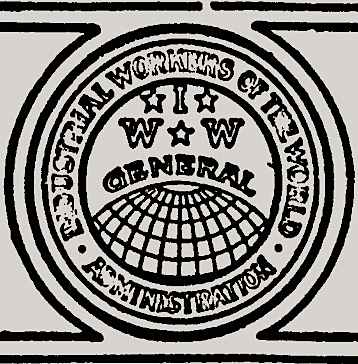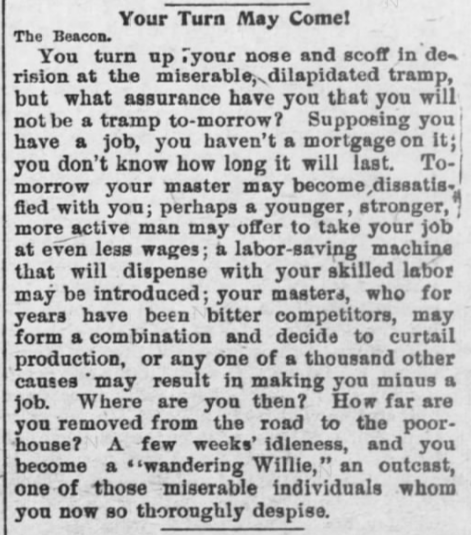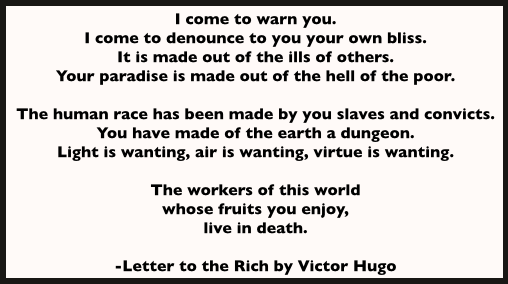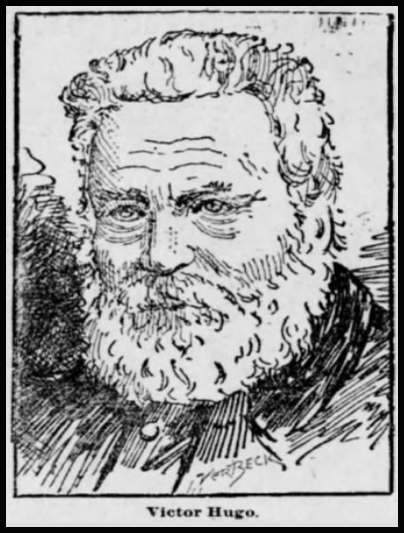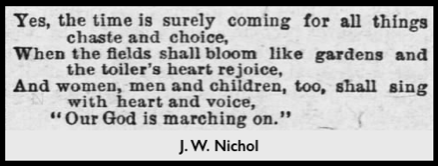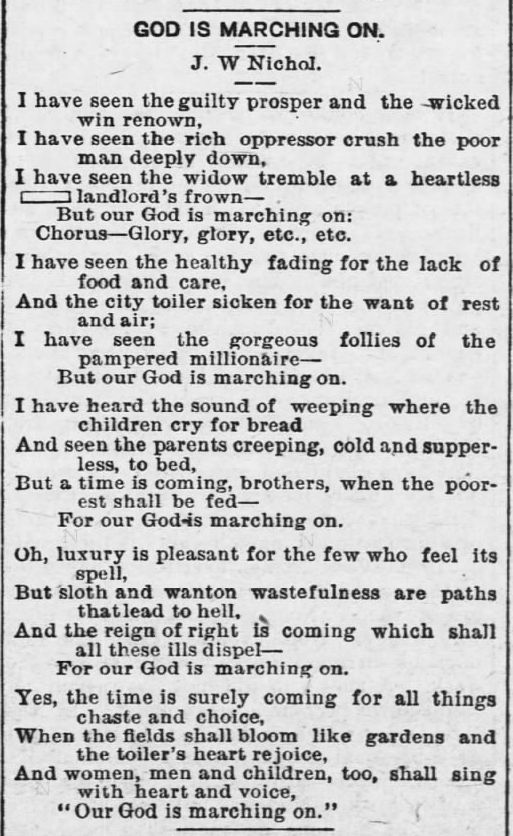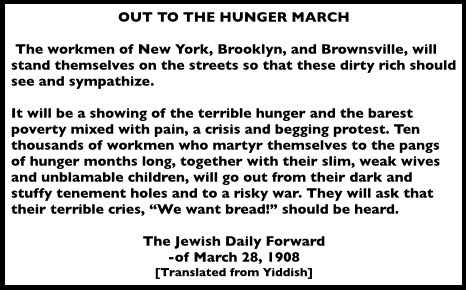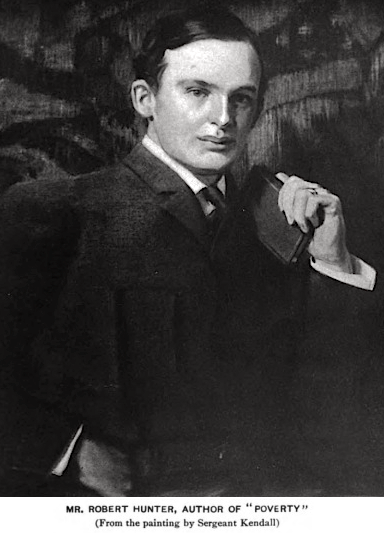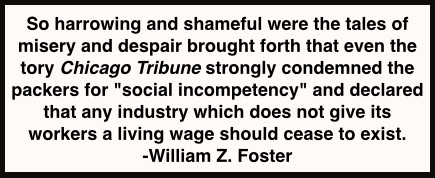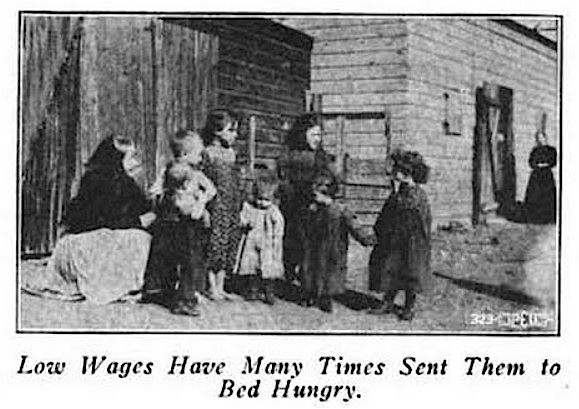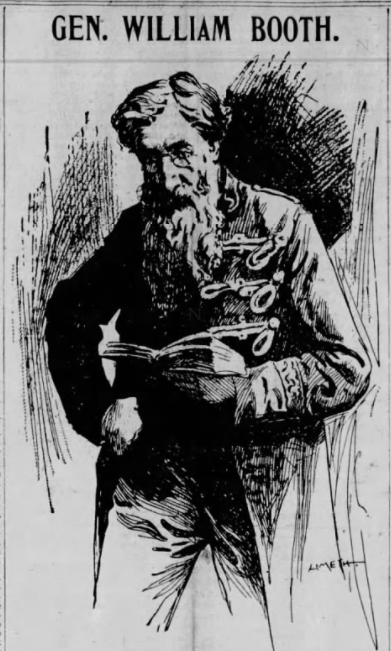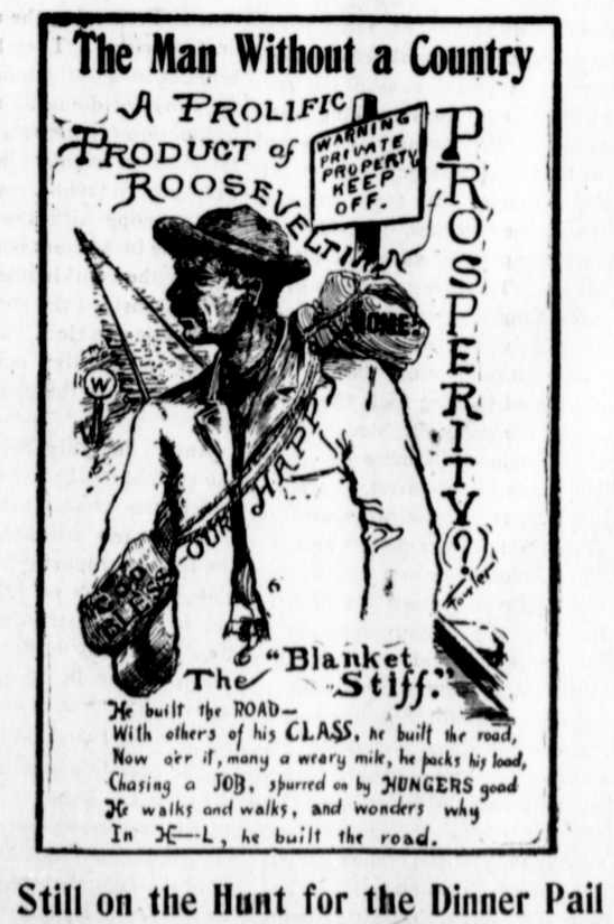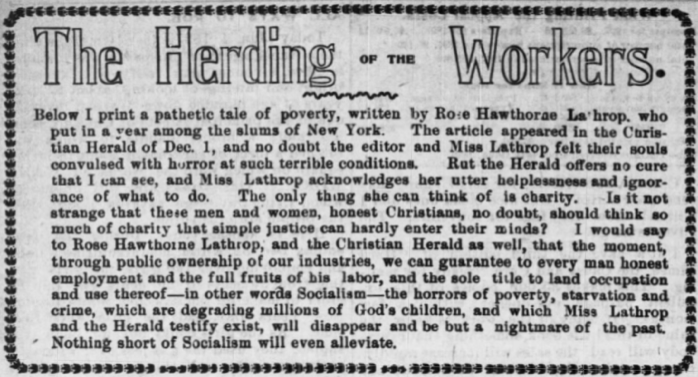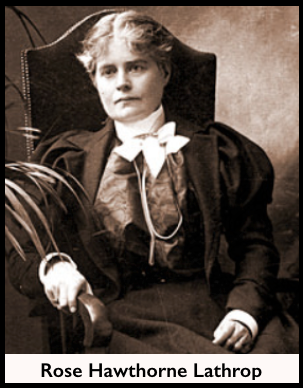Am I to die, starving in the midst of plenty?
Or shall I die fighting?
For my part, a thousand times over,
I’ll die fighting before I’ll die starving.
-J. H. Walsh
~~~~~~~~~~~~~~~~~~~~~~~~~~~~~~~~~~~~~~~~~~~~
Hellraisers Journal, Thursday July 30, 1908
National I. W. W. Organizer Reports from the Pacific Northwest
From The Industrial Union Bulletin of July 25, 1908:
SHALL WE DIE STARVING, OR SHALL WE DIE FIGHTING?
[by J. H. Walsh]
We are confronting a new condition in the labor movement in the northwest, and judging from all the labor reports it is the same throughout the United States, as well as many of the foreign countries.
Every train in this country is loaded with dozens of “hoboes” (working men looking for jobs), and in some instances there are hundreds in place of dozens. Last night there arrived on one train in this city [Spokane?] 313 men who were beating their way. The previous night 73 arrived in one box car, and in another car 53. The men coming to the headquarters report the same news day after day, and that is that the unemployed army is growing larger and larger.
There are ten men in the harvest fields in this country for every job. They are working for as low as 75 cents per day. There are women and children in this country actually starving. This is not the worst. The worst is yet to come. After the harvest is over the hundreds who secured work, although at small wages, will return to the army of unemployed. Its ranks will be swelled again. And swelled just on the verge of winter, when hardships will be added to the workers’ struggles for an existence.
Those who are getting their “feet under dad’s table,” coupled with those who have a job sufficiently remunerative to eke out an existence, will stand united with the philosophers in passing resolutions condemning the conditions-Bryan, “God Knows” Taft, etc., etc. But resolutions, no matter how philosophically drawn, will not fill empty stomachs.
I am with the “down-and-outs”-I am broke. I am in a land of plenty. Am I to die, starving in the midst of plenty? Or shall I die fighting? For my part, a thousand times over, I’ll die fighting before I’ll die starving.

